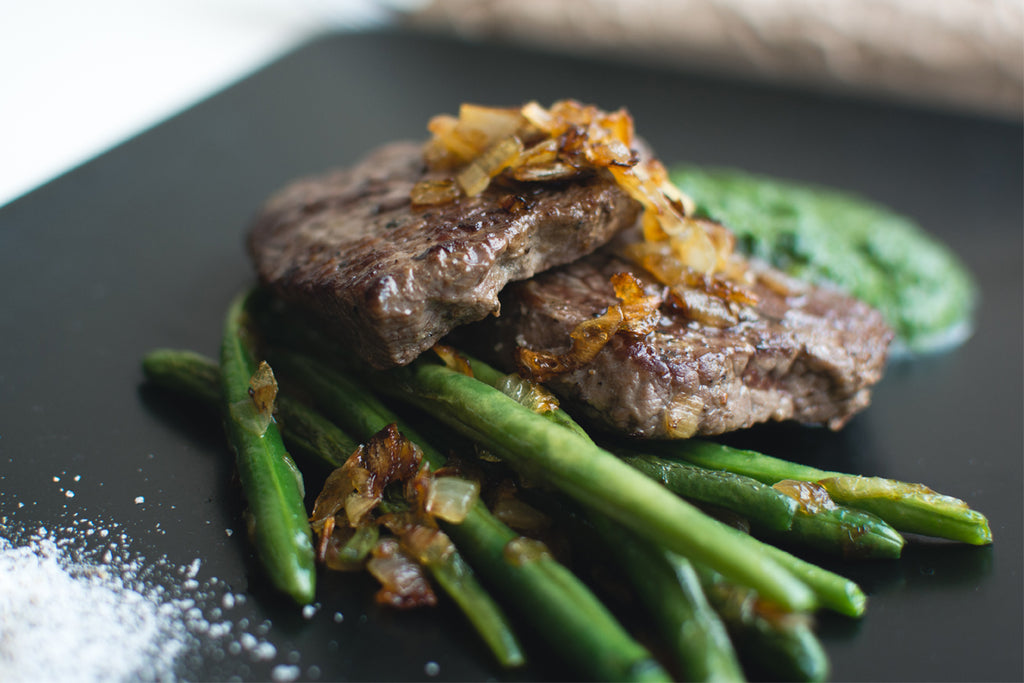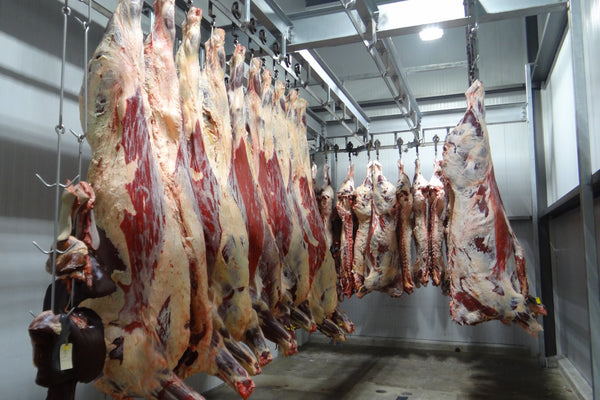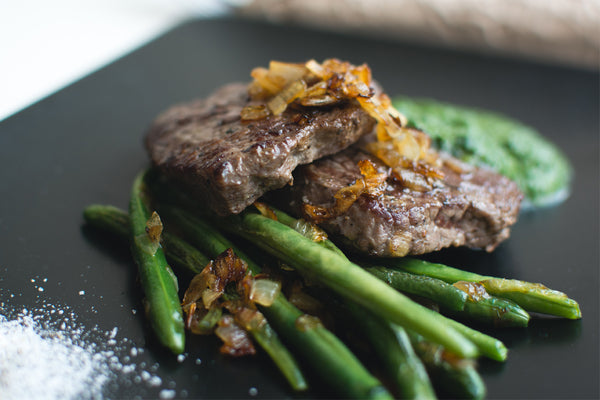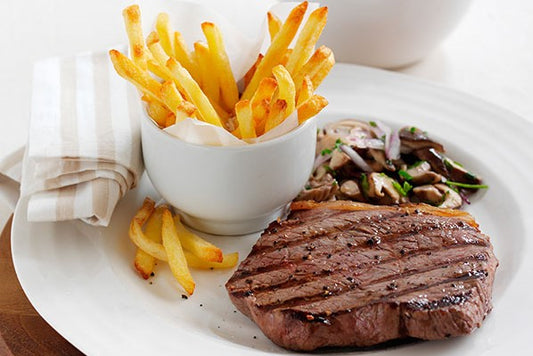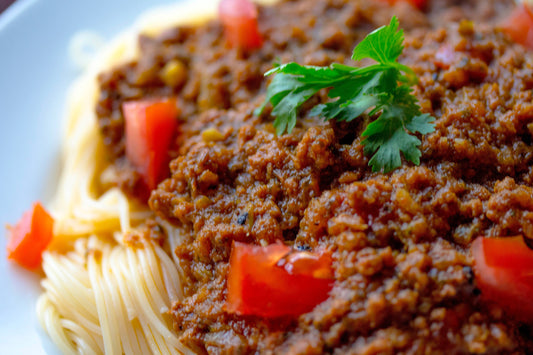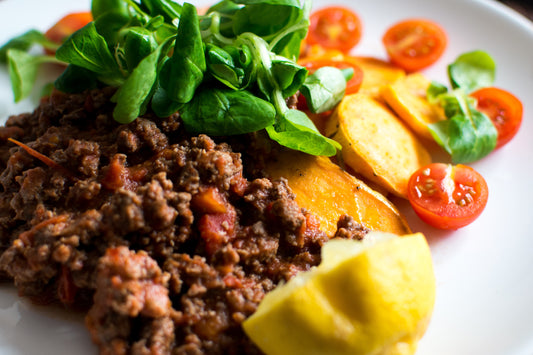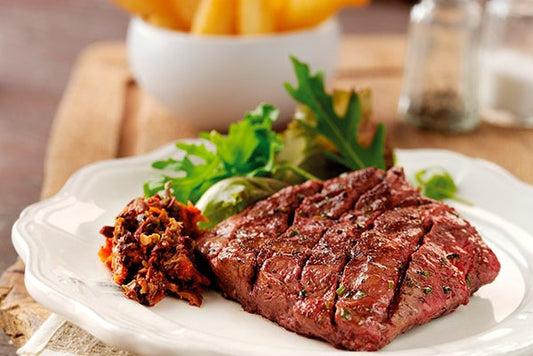We get asked a lot whether we sell grass fed beef, and the answer isn't really as simple as a straightforward 'yes' or 'no.' If you're looking for certified grass fed beef, the answer is no. That being said, as we sell strictly British, or Irish beef, the answers is probably yes, just not officially. In this article, we'll delve into the intricacies of UK beef production to explain why the situation is a bit more nuanced, with considerations beyond the label of 'grass-fed.'
The Grass Fed Dilemma
The concept of grass-fed beef is a hot topic at the moment, even though it may seem perplexing in the context of the UK. It's worth noting that this issue isn't primarily driven by the meat and agriculture industries themselves, but rather by external factors.
Seasonal Dynamics: While British beef is not strictly confined to a particular season, many farmers agree that their finest beef is produced during the summer months when cattle can easily graze on grass and natural vegetation. It becomes considerably more challenging to provide a grass-based diet during the winter months, which leads to a more varied feeding regime for cattle.
Regional Variances: In regions like the USA and South America, there is a stronger emphasis on grass-fed beef due to concerns over intensive beef farming practices. In contrast, the UK, known for its lush pastures and green landscapes, traditionally follows what is considered the 'correct' way of raising beef. The belief is that this model aligns with sustainable and humane farming practices.
Scientific Uncertainty: While the benefits of grass-fed beef are widely discussed, the scientific studies surrounding these advantages are still in their early stages and lack conclusive evidence. Additionally, the health benefits often linked to grass-fed beef, such as higher omega-3 content, are mainly found in the marbled monounsaturated fat within beef. Trimming the fat, which is common in lean-eating recommendations, can mitigate these benefits.
Additionally, it's worth considering that beef may not be the most appropriate source to prioritize for omega-3 intake. While grass-fed beef is often touted for its slightly higher omega-3 levels compared to grain-fed beef, other foods, such as fatty fish (e.g., salmon, mackerel, and trout) and certain plant-based sources like flaxseeds and walnuts, offer significantly higher concentrations of omega-3 fatty acids. When it comes to dietary choices for enhancing omega-3 intake, diversifying one's diet to include these sources might be a more effective strategy than relying solely on beef.
Quality Over Labels
It's essential to emphasize that almost everyone agrees that natural grass diets produce excellent beef. The hesitation around the term 'grass-fed' isn't about discrediting its value but rather about seeking clarity. Many argue that it's become somewhat of a marketing badge without clear definitions or regulations.
The reality in the UK is that most beef cows graze on grass during the summer and are supplemented with hay, silage, or straw in the winter. In some cases, they remain outdoors, but for others, the harsh winter conditions necessitate indoor shelter.
A Matter of Trust
For many in the business, what matters most is the trust they place in farmers and suppliers who share their ethos. For some, being "grass-fed" doesn't necessarily guarantee superior quality. The increasing demand for grass-fed beef can sometimes lead to practices like sending cattle to slaughter earlier than ideal or force-feeding to achieve the grass-fed label, even though allowing cattle to mature and finish naturally may be better for their well-being.
In fact, some small-scale farmers prefer not to pursue the Organic or Grass-fed certifications because they believe in a more holistic approach to raising cattle, prioritizing what's best for the animals over certificates. This might involve feeding cattle on a diet they believe is best suited for their livestock's health and taste.
Closing Thoughts
While it's true that consumers are increasingly seeking grass-fed beef, it's vital to think about the reasons behind this choice rather than merely following the trend. The UK beef landscape is a complex one, with different farming practices influenced by tradition, climate, and the dedication to the welfare of the animals.
In conclusion, the landscape of UK beef production is nuanced, with a deep-rooted tradition of primarily raising cattle on grassy pastures. While the term 'grass-fed' might have become a bit of a marketing label, the reality is that in the UK, the majority of beef cows graze on grass in the summer months and are sustainably supplemented with hay, silage, or straw during the winter. This practice reflects the commitment to both the well-being of the animals and the preservation of traditional farming values. Rather than emphasizing specific labels or certifications, it's essential for consumers to understand the broader context and appreciate that UK beef is, in practice, already largely grass-fed. By supporting local and trusted farmers who prioritize the welfare of their livestock, consumers can continue to enjoy high-quality beef while embracing a holistic approach to sustainable and humane farming.
In the end, what truly matters is the quality of the beef and the values it embodies. By understanding the broader context, consumers can make informed choices and appreciate the multifaceted world of British beef production.
